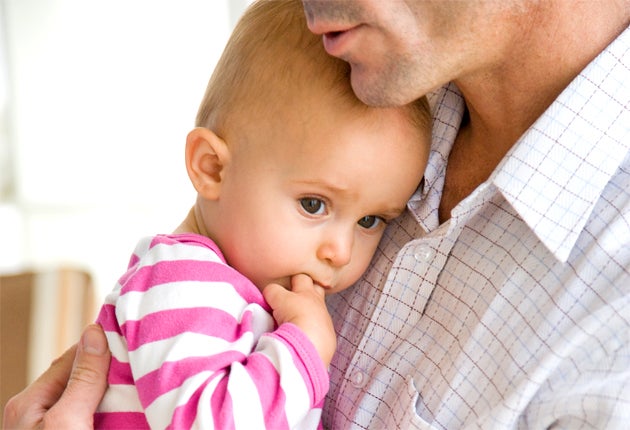Teenage boys' attitudes to risky sex 'can help predict their what type of father they will be'
The study asked young men to respond to statements such as: 'If you had sexual intercourse, your friends would respect you more'

Your support helps us to tell the story
From reproductive rights to climate change to Big Tech, The Independent is on the ground when the story is developing. Whether it's investigating the financials of Elon Musk's pro-Trump PAC or producing our latest documentary, 'The A Word', which shines a light on the American women fighting for reproductive rights, we know how important it is to parse out the facts from the messaging.
At such a critical moment in US history, we need reporters on the ground. Your donation allows us to keep sending journalists to speak to both sides of the story.
The Independent is trusted by Americans across the entire political spectrum. And unlike many other quality news outlets, we choose not to lock Americans out of our reporting and analysis with paywalls. We believe quality journalism should be available to everyone, paid for by those who can afford it.
Your support makes all the difference.Young men less concerned about risky sex are 30 per cent more likely to to live apart from their children, a study has found.
Researchers from the Feinburg School of Medicine at Northwestern University studied young men over a 14 year period to find out if it was possible to predict if they would become teen fathers.
Prior research has found that men who become teen fathers are less likely to finish their school education and are more likely to have lower-income jobs.
The study asked young men to respond to statements such as "If you had sexual intercourse, your friends would respect you more," "It wouldn't be all that bad if you got someone pregnant at this time in your life," and "Using birth control interferes with sexual enjoyment."
Their scores were then correlated with their subsequent fatherhood status to discover how their teenage understanding and attitudes towards sex impacted their later lives.
Dr Craig Garfield said: "I was very surprised that, based on what adolescent males tell us in their teenage years, we could predict whether they would later become a teen father or a nonresident father.
"Much of the male-focused research to date has mostly looked at risky behaviour and STIs.
"We're expanding male reproductive health across the lifespan and beginning to see how early beliefs relate to later outcomes and health, including fatherhood."
He added: "We can intervene so these young men don't go on to become teen fathers and are less likely to become nonresident fathers
"That's a role the school system and health care workers can play when seeing young men for physicals.
"Together we can help young men think about their futures."
This study, entitled "Adolescent Reproductive Knowledge, Attitudes and Beliefs and Future Fatherhood", was published in the Journal of Adolescent Health.
Join our commenting forum
Join thought-provoking conversations, follow other Independent readers and see their replies
Comments